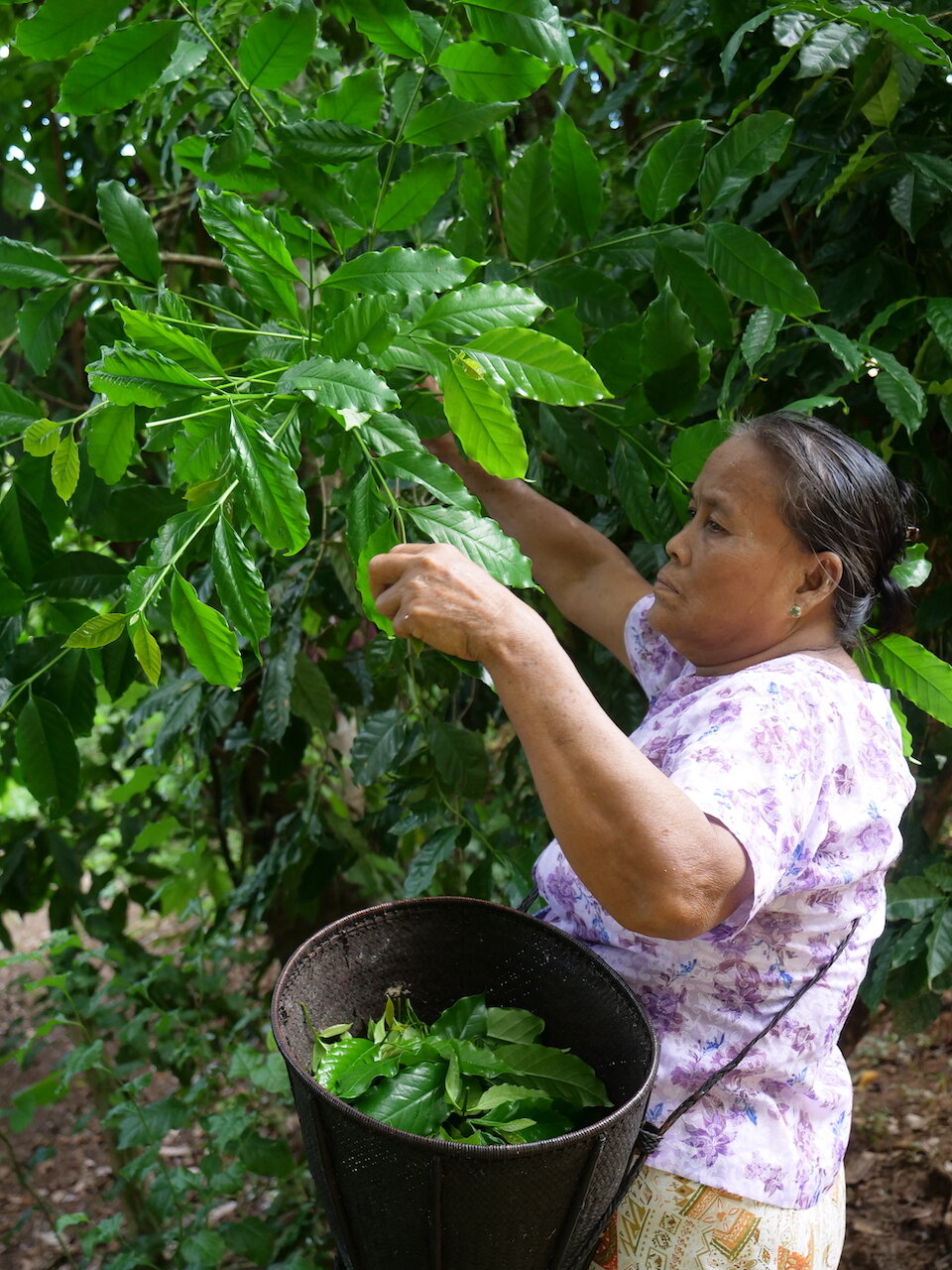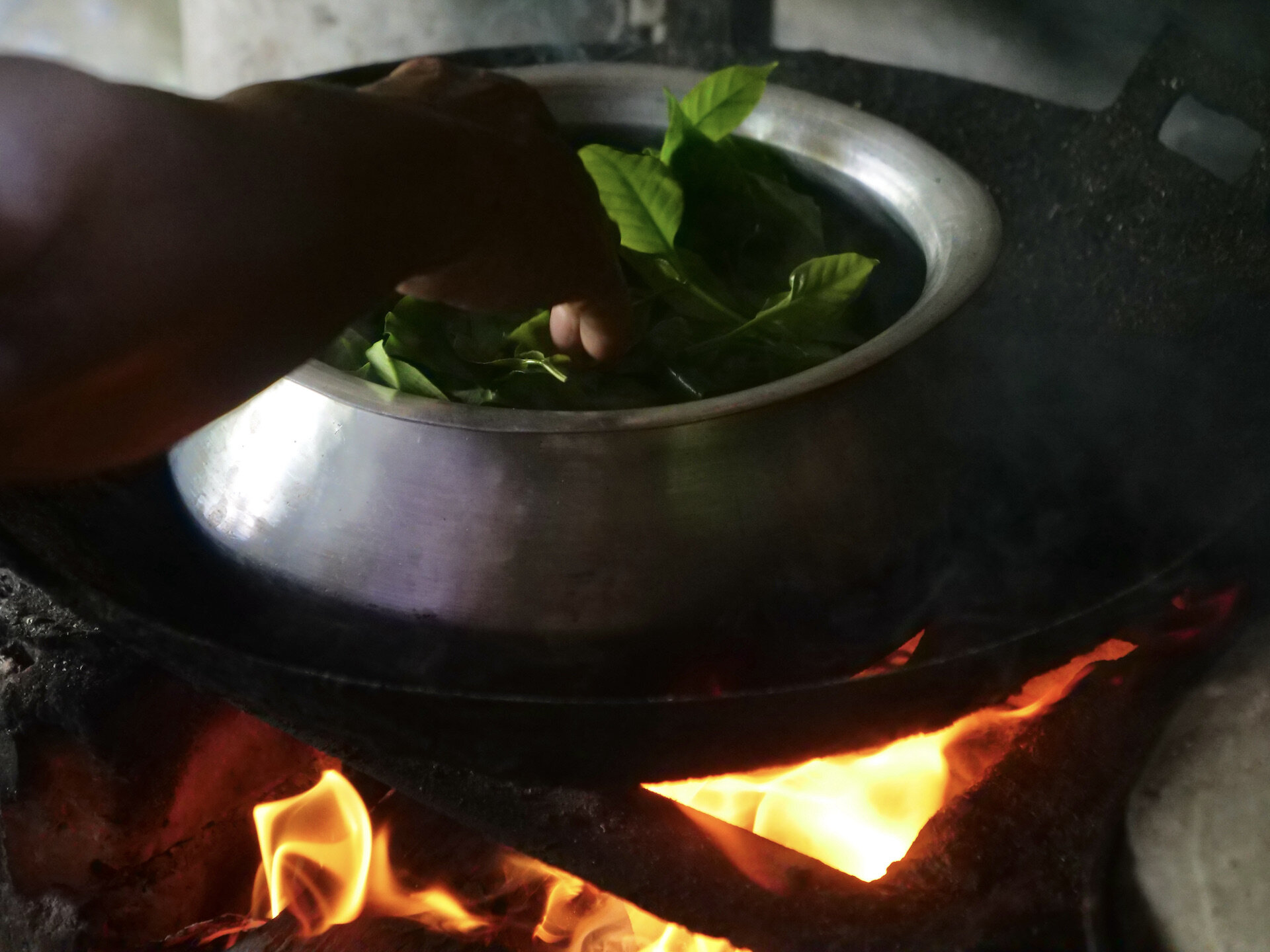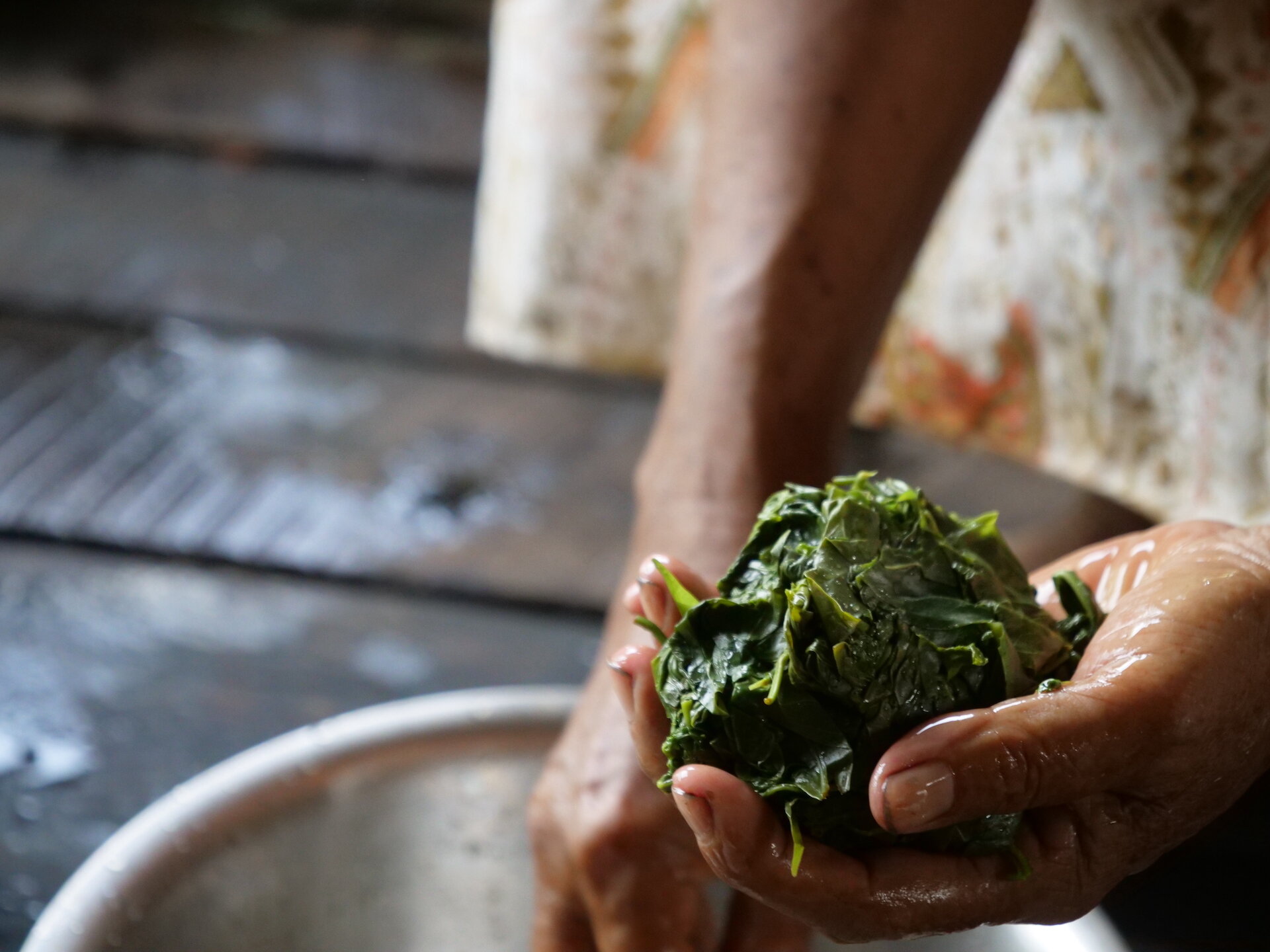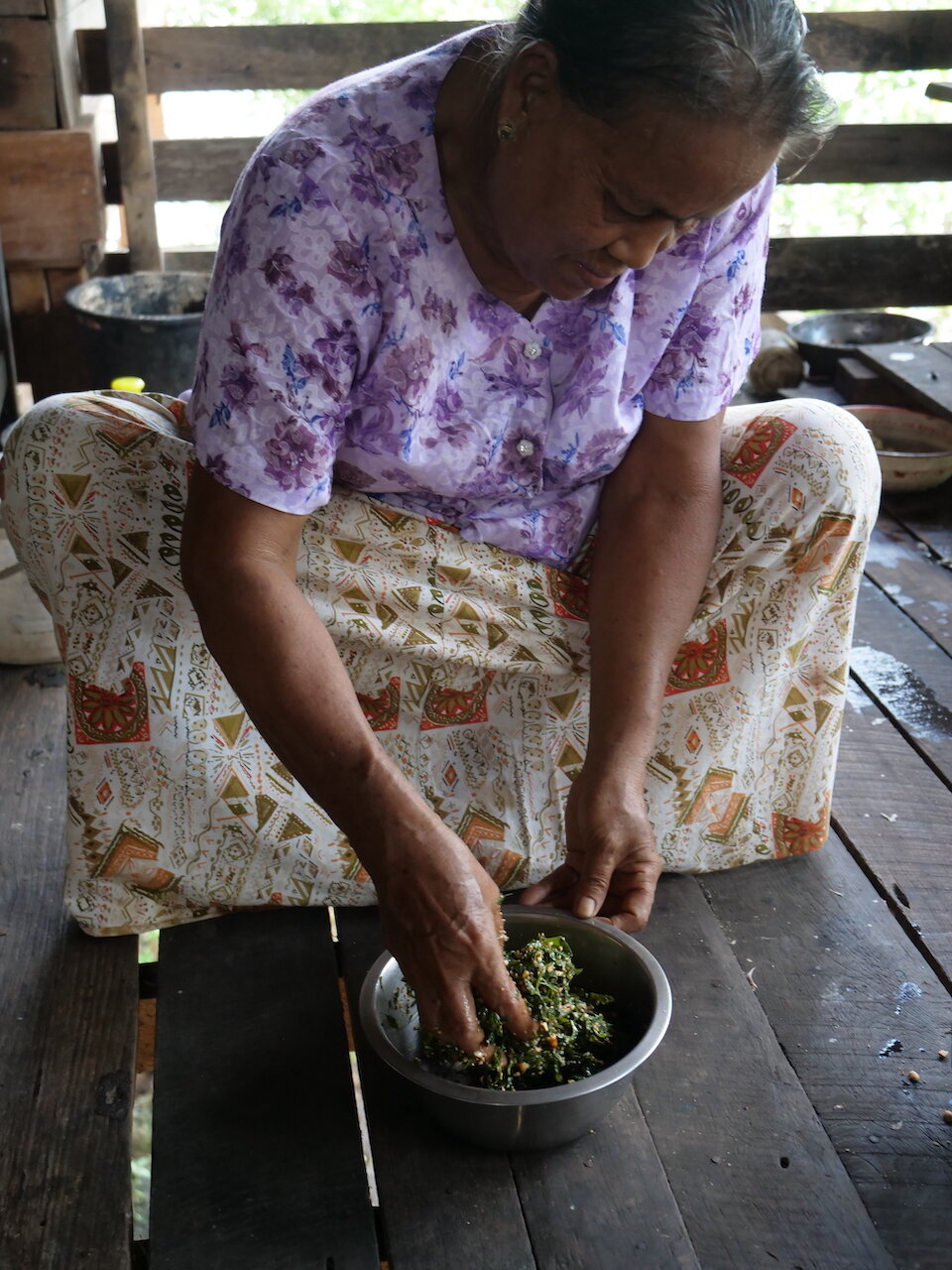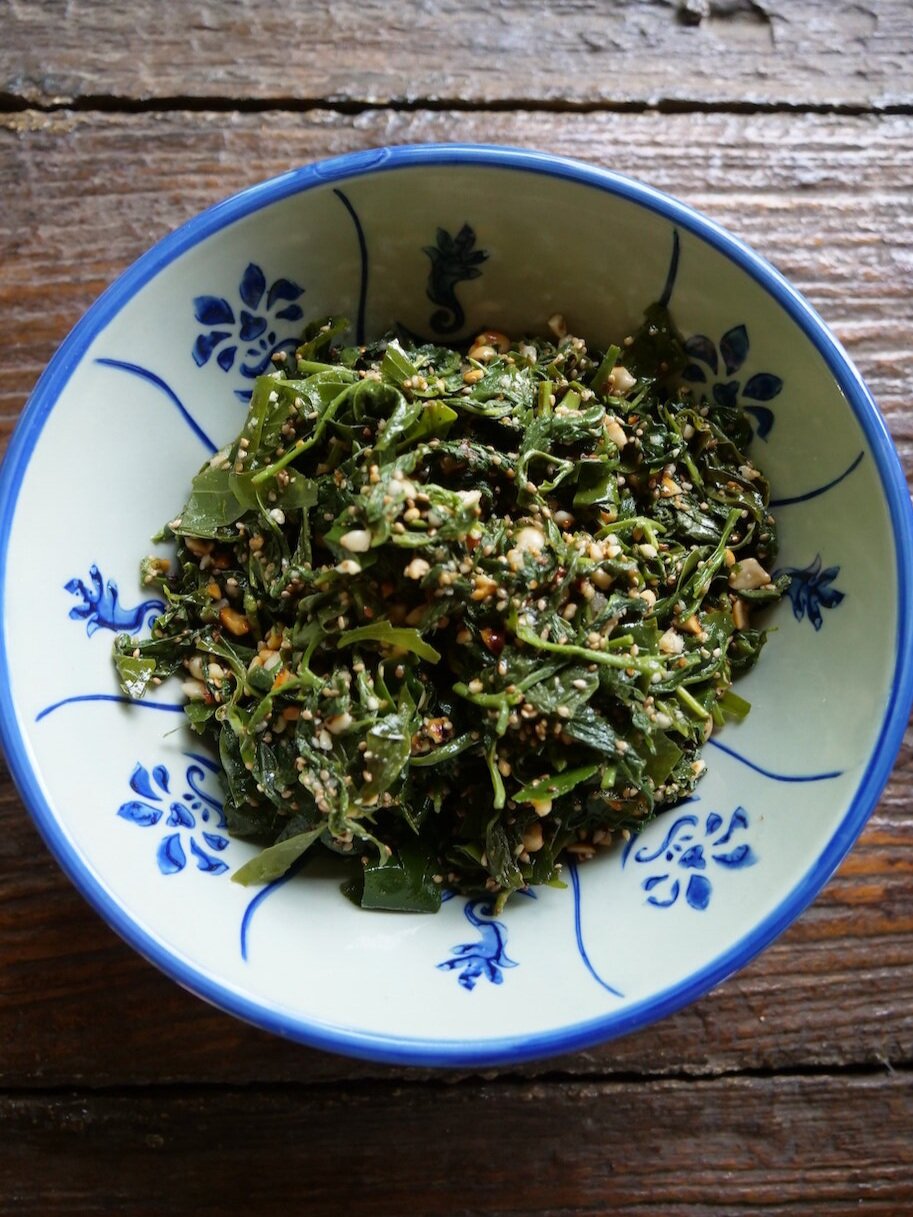According to Khin Ohmmar Moe, President of the International Women’s Coffee Alliance (IWCA) Myanmar, Robusta makes up roughly 23% of the total coffee production in Myanmar. Despite nearly a quarter of production, the Robusta sector is highly fragmented, and smallholders often lack market knowledge or any formal supply chain organization. This is true for the Indawgyi Lake Wildlife Sanctuary. Face of Indawgyi’s research during the 2019 harvest season found that roughly 250 mature robusta plants grow in ten villages between seventeen smallholder farmers—but, surprisingly, it’s not for drinking.
Endemic culture
Where people eat, not drink, coffee.
As we first started researching Robusta coffee around Indawgyi, we found an unexpected familiarity with the coffee plant. People in every village could tell us which family still grows it, and the collective story everyone shared is “there used to be many, but they’re all gone now.” Upon digging deeper, people shared that many coffee plants were cleared roughly 10 years ago when the government stopped purchasing coffee cherries. Instead, families today primarily grow coffee for the unique use of its leaves in salads—a culture unfounded not only in other coffee-growing regions in Myanmar but also around the coffee-growing world. After consulting international coffee experts who have lived and worked in Africa, the Middle East, Asia, and Central & South America, we have yet to find another place on earth that consumes coffee leaves. For Indawgyi residents, this dish often takes the delicious form of the coffee-leaf salad.
In the January 2021 issue of Barista Magazine, Andrea Zinn wrote a fascinating deep-dive piece on Indawgyi’s coffee-eating culture. It’s a must-read for anyone looking to get the full story behind this dish, the Shan-ni and Kachin people who make it, and the Myanmar coffee story at large.
Turning a new leaf
Social impact through existing Robusta plants.
With a huge absence of licit and safe economic opportunities for young adults around the Indawgyi Lake region, we’re constantly looking for new or supplementary livelihoods that can help families diversify their income. This project, specifically, will create a new sector for ethical economic opportunity by leveraging a crop that is already familiar to and grown by families in the area. Such jobs have the potential to protect people from boom-and-bust cycles with other crops, hazardous work in logging and mining, or any unpredictable circumstances.
In addition to the featured coffee at our social impact Pink Headed Duck Cafe, Sawbwa Coffee Co. is working with Indawgyi farmers as they develop better Robusta coffee production.
Individuals from Shan-ni and Kachin ethnic backgrounds, both native to southern Kachin State, are the only Robusta smallholder farmers around Indawgyi Lake. While coffee is clearly not a popular local drink, there is a strong interest and willingness from farmers to learn about harvesting, processing and connecting with a consistent buyer. That’s why we started working with Yangon’s Sawbwa Specialty Coffee, which has found our beans to be the cleanest cup profile of Myanmar Robusta sampled so far by the company, and has committed to purchasing beans as we increase production volume.
During the 2019 harvest, Face of Indawgyi worked with nine Robusta-growing families to collect parchment coffee and dried coffee husks for cascara tea. For the 2020 harvest, this increased to seventeen smallholders. As we coordinate from the Kachin IDP camp in Nanmun Village to the Shanni Youth Network in Panla Village, our program will seek out women and youth participants throughout the Robusta value chain. We see coffee as an opportunity to bring increased income and economic empowerment to Shan-ni and Kachin communities while also increasing cooperation between these groups around Indawgyi Lake.
The farmers
Starting small-scale to yield higher-quality cherries.
Regardless of the number of Robusta plants, we make sure to work with every smallholder coffee farmer at Indawgyi. These farmers, mostly women, are our neighbors and friends, and this approach ensures that we give the necessary training and resources to those most directly interested in local coffee production. Starting in 2022, we’ve also started working with local civil society organizations (CSOs) and community leaders to provide Robusta seedlings to current and prospective smallholder farmers with the intention of expanding to as many of the 37 villages around the lake.
We’d now like to introduce all of our amazing friends currently growing Robusta coffee. Their small farms range from 3 to 50 fruiting plants, and we’ve begun to develop close working relationships with them during each and every harvest.
Giving Indawgyi coffee a home
A truly home-grown and impactful experience.
This project and so many others come to life in our social impact Pink Headed Duck Cafe. As we better organize and develop the Indawgyi single-origins, we wanted to offer a cozy place for visitors to sample Indawgyi’s first-ever batches of Robusta coffee and Cascara tea while also giving back to the community. That’s why every purchase, from a cup of coffee to a stand-up paddleboard rental, includes a 25% giveback to a community-led fund. While we’re just getting started, we can’t wait to see where this coffee journey takes us over the next decade and beyond.



